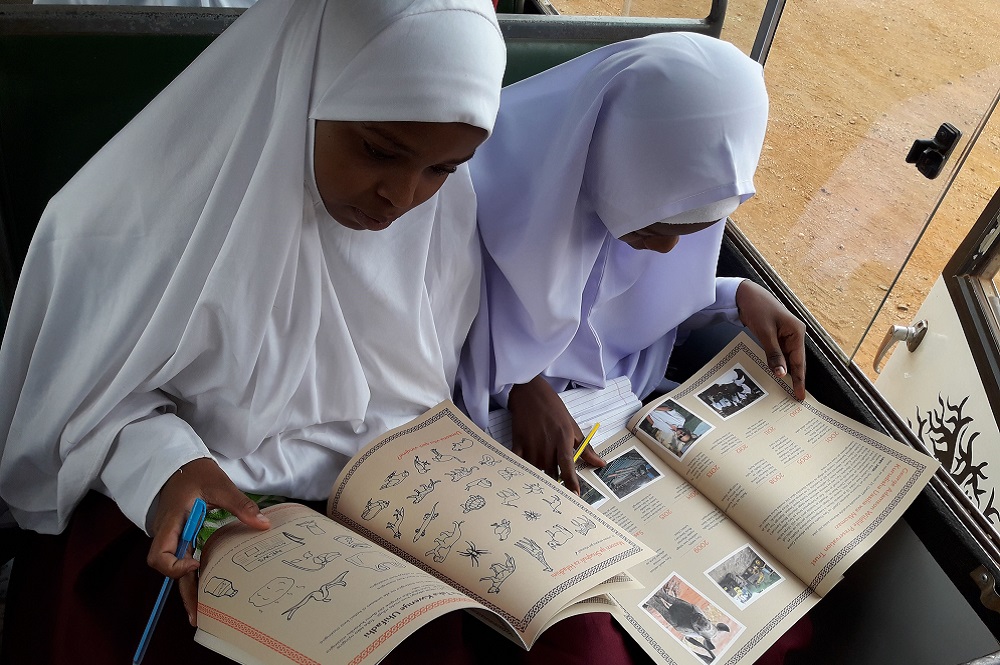Written by Lucy Fitzjohn, Project Administrator, Mkomazi Rhino Sanctuary.
Since 2008, our wonderful education programme has reached almost 8,000 school children, as well as teachers and village leaders, all coming to see endangered species programmes first hand in the field. Rafiki wa Faru is really one of the best things we have ever done for the communities and school children in the surrounding villages. It continues to be a huge success, with the colourful bus trundling into Mkomazi National Park and the Rhino Sanctuary, bringing young students who we teach about wildlife and habitat conservation and above all, about black rhinos.
Everything is carefully designed to give each learner a truly memorable experience; from entering the Park through the gate at the Tanzanian National Park HQ, to arriving at the Rhino Sanctuary and hopefully seeing a rhino, meeting security guards and rhino trackers, and then walking up the hill to the education centre where they are taught key messages about rhino conservation.
 We often hear that the students make up songs about Mkomazi on their bus journey back home at the end of the day. A beautiful sound that must be! Distinct and poignant memories resound about the plight of the rhino, the threats they face and the huge effort that goes into protecting them.
We often hear that the students make up songs about Mkomazi on their bus journey back home at the end of the day. A beautiful sound that must be! Distinct and poignant memories resound about the plight of the rhino, the threats they face and the huge effort that goes into protecting them.
At Mkomazi, we practise a multi-faceted approach to rhino security, including traditional protection methods such as alarmed fencing and anti-poaching patrols, as well as aerial surveillance, training scouts and a tracker dog unit. But winning the hearts and minds of local communities, teaching them about flagship species such as the black rhino, and inspiring them to take on positive environmental action is just as necessary to ensure that these precious rhinos thrive in the long-term.
“The students that form part of the Rafiki wa Faru programme are crucial to this endeavour. Rafiki wa Faru translates as ‘Friends of Rhinos’ and we are fortunate to have these school children as friends.”
We are enormously grateful to all the people that have supported this programme since it began. With such great partners, we hope we can ensure that this fine programme will flourish long into the future.
A version of this article was originally printed in The Horn 2018.









